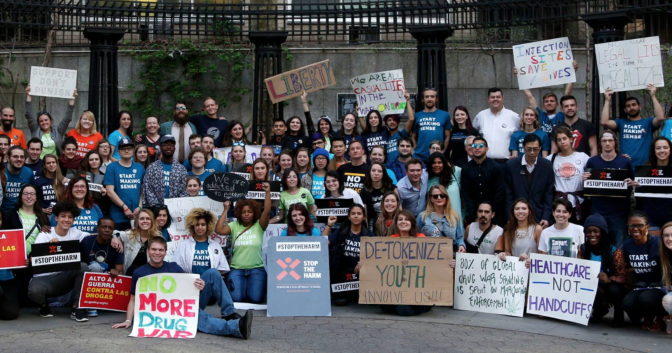Betty Aldworth: It’s Time for Prohibition to Retire

On Aug. 1, Senator Corey Booker (D-NJ) introduced groundbreaking legislation to remove marijuana from the federal Controlled Substances Act. His Marijuana Justice Act is not the first attempt to do this, but it is the first with the explicit intent of targeting the racist origins and continued racist enforcement of the War on Drugs.
Drug policy in the U.S. has always been used as a tool to target and oppress specific groups of people. The first anti-marijuana laws, enacted in the early 20th century, were originally directed at Mexican immigrants and Mexican-Americans. By the time the Marihuana Tax Act was signed in 1937, other countries had banned cannabis use, possession or trade. Many more would follow.
Marijuana prohibition escalated under Nixon’s direction and largely focused on poor people of color. During the ’80s, mass incarceration and law-enforcement budgets both skyrocketed under Reagan’s. Marijuana continues to account for the most of the trade in and consumption of illicit drugs in the U.S.
Around the world, nations have participated in the dehumanization of their own citizens by allowing or conducting eradication campaigns, criminalizing users and producers of cannabis, and stripping indigenous communities of their medicine or religious sacraments. And for what? While cannabis prohibition hasn’t reduced production, trade or use, it has devastated communities and denied life-saving medicine to millions.
Eighty years after federal prohibition began in the U.S., it’s proven to be a failure and is being dismantled in many places. Internationally, SSDP is driving that dismantling by changing cannabis policies—and perhaps more importantly, attitudes—from university campuses to the United Nations. We’re a community of young people who deeply understand the insidious nature of the drug war.
We’re using the tools of coalition building, advocacy, public perception and scientific evidence to end that war and influence the nascent cannabis industry. We empower students to participate in the political process and develop leaders who advocate for policy changes based on justice, liberty, compassion, and reason.
Since 1998, SSDP members have participated in nearly every cannabis-policy reform campaign in the U.S., and have also led campaigns for reforms in other countries. Just last year, we made 70,000 contacts to educate and turn out voters in support of that. In 2018, we’ll do it again. If you’d like to help end prohibition, visit ssdp.org. Join or start an SSDP chapter or become a supporting member today.
If you enjoyed this Freedom Leaf article, subscribe to the magazine today!
